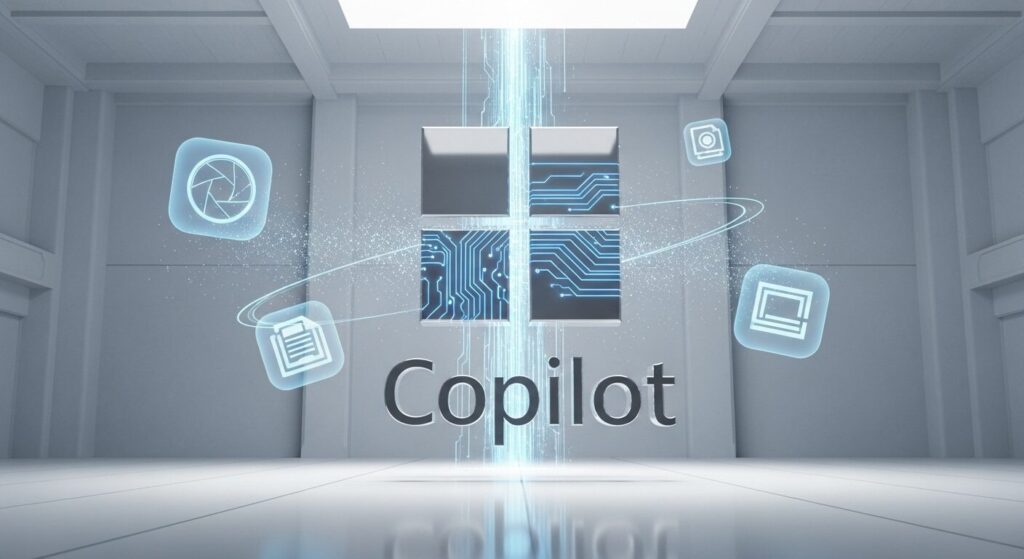Microsoft is set to retire its popular mobile document scanner, Microsoft Lens, on September 15, 2025, directing its millions of users toward the more expansive Microsoft 365 Copilot app. This move, initially reported by TechCrunch on August 8, 2025, highlights a significant strategic shift within the tech giant: a push towards consolidating single-purpose applications into broader, AI-powered productivity suites.
The End of an Era for Simple Scans
For years, Microsoft Lens has been a go-to tool for effortlessly scanning documents, receipts, and business cards, seamlessly integrating them into various Microsoft applications like OneNote, Word, and PowerPoint. Its simplicity and dedicated functionality earned it a loyal user base, accumulating over 92 million downloads since 2017. However, the impending discontinuation means new downloads will cease by mid-October 2025, and the scanning capability will be removed by December 15, 2025, as detailed by WebProNews.
User reactions have been notably mixed. Many express disappointment over the loss of Lens’s straightforward, ad-free experience and its convenient direct-save options to specific Microsoft apps. Features like read-aloud accessibility, which were part of Lens, are also a point of concern for users who relied on them. While existing scans will remain accessible, the forced transition to Copilot represents a disruption for those who valued Lens for its singular, efficient purpose.
Copilot’s Vision vs. Lens’s Legacy
Microsoft’s decision to sunset Lens is rooted in its broader strategy to integrate scanning features into OneDrive and, more significantly, into the Microsoft 365 Copilot. The company cites advancements in native smartphone camera capabilities as a factor, aiming for a more unified ecosystem. However, the transition isn’t entirely seamless for users accustomed to Lens’s specific features.
As of August 2025, Copilot’s document scanning capabilities, while evolving, lack several key functionalities that made Lens so effective. For instance, Copilot does not currently support direct saving of scanned documents to OneNote, Word, or PowerPoint; instead, files are routed through OneDrive. The ability to scan business cards directly into OneNote contacts is also absent, as are integrated accessibility tools like read-aloud features. These limitations indicate that while Copilot offers a broader AI-powered experience, it may not yet provide feature parity for Lens’s dedicated users, leading some to explore third-party alternatives like Google Drive’s scanner.
The Broader Trend: AI Consolidates Apps
Microsoft’s move with Lens is not an isolated incident but rather a clear indicator of a wider industry trend. General-purpose AI assistants are increasingly absorbing functionalities once handled by discrete, single-purpose applications. This shift is redefining mobile app categories and creating significant pressure on developers of niche tools, as highlighted by Digital Information World.
For businesses, this consolidation presents both opportunities and challenges. On one hand, integrating AI assistants for tasks like content creation, HR, and customer support can lead to substantial efficiency gains and cost reductions. Companies are finding that small businesses are increasingly adopting AI for growth, rather than just cost-cutting. On the other hand, specialized apps that cannot differentiate or integrate effectively risk becoming obsolete. While general AI tools are becoming ubiquitous, there remains a need for highly specialized applications, particularly in sectors requiring high trust, regulatory compliance, or deeply personalized services.
Microsoft’s Agentic AI Ambition
Microsoft’s push to integrate scanning into Copilot aligns with its ambitious enterprise strategy for 2025: transforming Copilot into an “autonomous digital coworker.” This vision, detailed at Microsoft Build 2025, involves Copilot operating as an AI agent capable of reasoning, planning, and executing complex, multi-step business workflows independently. This is a significant evolution from a mere assistant to a proactive participant in digital operations.
Key to this strategy is multi-agent orchestration, where teams of Copilot agents cooperate to solve complex problems, and the Microsoft Copilot Studio. The Studio provides a low-code environment, allowing organizations to customize and train Copilot agents using their proprietary data and workflows, without needing extensive AI expertise. This deep integration with Microsoft 365 apps and other enterprise systems, alongside enhanced governance and security features, underscores Microsoft’s commitment to embedding AI agents as first-class components of the modern workforce. This strategic direction is similar to how OpenAI is reshaping enterprise AI with powerful models.
Navigating the Shift: What Businesses Need to Know
For businesses and professionals, the discontinuation of Microsoft Lens and the emphasis on Copilot signal a broader imperative: adapting to an increasingly integrated, AI-driven digital environment. While the immediate transition might present minor inconveniences for Lens users, the long-term implications are about embracing a more consolidated and intelligent workflow.
Organizations should assess their reliance on single-purpose tools and explore how broader AI platforms like Copilot can streamline operations. This involves understanding the current capabilities and limitations of these integrated solutions, and strategically planning for the adoption of AI agents. Ensuring robust governance, security, and compliance remains paramount, especially as AI systems handle increasingly sensitive data, a concern highlighted by discussions around the hidden threat of zero-click AI attacks.
This shift empowers employees to offload repetitive tasks, freeing them for more strategic work. For IT leaders, it offers the potential for deep AI-driven automation with reduced complexity. The key is to balance the immediate user experience with the long-term strategic benefits of a unified, AI-powered ecosystem.
The Future is Integrated
Microsoft’s decision to retire Lens in favor of Copilot is more than just an app update; it’s a microcosm of the larger trend defining the future of digital productivity. As AI capabilities advance, the industry is moving towards comprehensive, intelligent platforms that aim to do more than one thing well—they aim to do many things seamlessly. This consolidation promises greater efficiency and more powerful automation, fundamentally reshaping how businesses operate and how individuals interact with their digital tools.”



